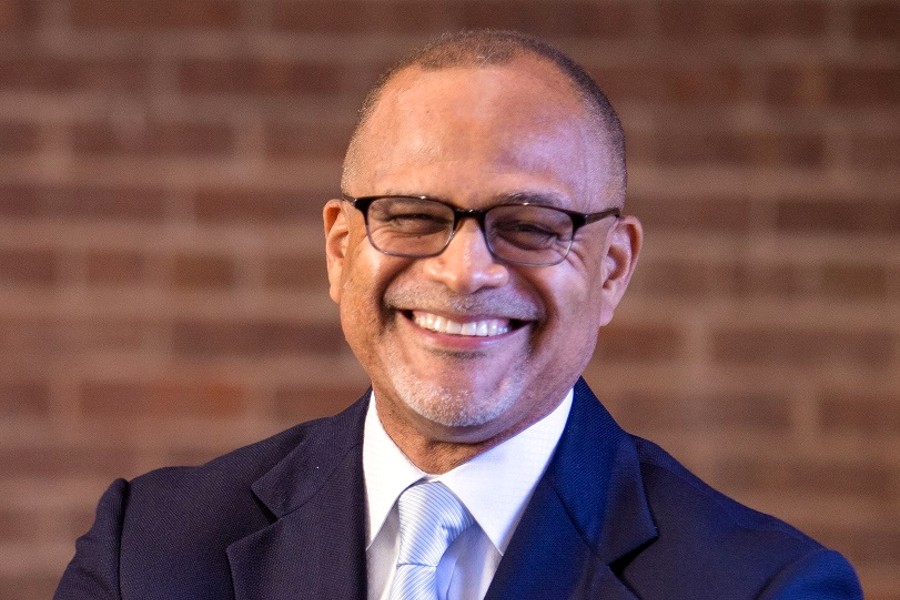 The NYC Department of Consumer Affairs (DCA) has officially launched its new Paid Care Division within its Office of Labor Policy & Standards (OLPS) with the first in a series of events to bring together paid care workers, including home care and domestic workers, as well as workers’ rights organizations, policy experts, and legislators. On March 4, DCA along with the City Commission on Human Rights (CCHR), the Mayor’s Office of Immigrant Affairs (MOIA), and the National Domestic Workers Alliance (NDWA), convened more than a hundred home care workers, nannies, caregivers, and housecleaners and partners to discuss strategies for safeguarding workers’ rights in the face of new threats to immigrant and other vulnerable workers. DCA also announced the release of NYC Cares for Care Workers: An Overview of Rights and Resources for paid care workers.
The NYC Department of Consumer Affairs (DCA) has officially launched its new Paid Care Division within its Office of Labor Policy & Standards (OLPS) with the first in a series of events to bring together paid care workers, including home care and domestic workers, as well as workers’ rights organizations, policy experts, and legislators. On March 4, DCA along with the City Commission on Human Rights (CCHR), the Mayor’s Office of Immigrant Affairs (MOIA), and the National Domestic Workers Alliance (NDWA), convened more than a hundred home care workers, nannies, caregivers, and housecleaners and partners to discuss strategies for safeguarding workers’ rights in the face of new threats to immigrant and other vulnerable workers. DCA also announced the release of NYC Cares for Care Workers: An Overview of Rights and Resources for paid care workers.
The launch of the division comes in advance of International Women’s Day. Research indicates that the vast majority of paid care workers in the United States are women, and they provide critical child and elder care that enables millions of Americans to participate in the formal economy. DCA’s new Paid Care Division is the country’s first municipal government initiative dedicated to defending the rights of these workers, who are a critical part of the nation’s social and economic infrastructure.
Originating in efforts by advocacy groups representing paid care workers and created by a collaboration between the Harlem City Council Speaker Melissa Mark-Viverito and Mayor Bill de Blasio…
Originating in efforts by advocacy groups representing paid care workers and created by a collaboration between the Harlem City Council Speaker Melissa Mark-Viverito and Mayor Bill de Blasio, its mission is to actively address—through referrals to direct service providers, policy advocacy, and research—the poor working conditions and the high rate of workplace law violations faced by paid care workers. The division will do this by engaging in public outreach and education to inform workers about their rights and about resources available to them; enforcing key laws and referring cases to sister agencies; as well as conducting and publishing research, with the aim crafting new legislation and policies that will strengthen and support the paid care workforce. According to the Bureau of Labor Statisitcs, paid care workers tend to be among the lowest-paid while also being one of the fastest-growing occupational groups in the country. In New York City, they are also overwhelming women and of color. The Division’s research, which will largely be conducted through direct worker interaction, will focus on demographics, working conditions, and employer compliance, among other issues. This type of research will be among the first of its kind by municipal government in New York City and, when published, will serve as a basis for new and innovative policy development.
Acknowledging the many years of advocacy by groups representing paid care workers to have their issues addressed by local government, DCA Commissioner Lorelei Salas said, “DCA is proud to be the home of the first local office anywhere in the country that is dedicated to supporting and advocating on behalf of paid care workers. Our mission is to create thriving communities and we can only accomplish that when paid care workers—who are a critical part of our social and economic infrastructure—have the tools and resources they need to exercise their rights.”
“Recognizing the challenges thousands of paid care workers face in New York City every day, the Council put forward legislation to protect their rights and needs,” said Harlem City Council Speaker Melissa Mark-Viverito.
“Recognizing the challenges thousands of paid care workers face in New York City every day, the Council put forward legislation to protect their rights and needs,” said Harlem City Council Speaker Melissa Mark-Viverito. “The establishment of a new Paid Care Division within the Office of Labor Policy & Standards is an important step forward in the fight for fair labor conditions. We will continue to work with the Department of Consumer Affairs to ensure that these workers are paid fair wages and protected from exploitative working conditions.”
“For too long domestic work—traditionally women’s work—has gone underpaid, and undervalued,” said Council Member Rafael Espinal, Chair, Committee on Consumer Affairs. “These jobs are as fundamental to the development of our economy and our families, as any other occupation. I applaud the Department of Consumer Affairs on this innovative ‘paid care division’ and its continued commitment to empower New Yorkers: wherever they may be and whoever they are.”
“I thank Mayor de Blasio and DCA Commissioner Salas for removing another brick in the wall that represents the historical divide between the ‘haves’ and ‘have nots’ in our city,” said Brooklyn Borough President Eric L. Adams. “Paid care workers are a vital component of our child care and health care systems that has been particularly vulnerable to workers’ rights abuse. Brooklyn will be a safer place to raise healthy children and families with the support of the Paid Care Division and its attention to workplace conditions as well as potential cases of discrimination and harassment.”
“The Department of Consumer Affairs’ launch of the Paid Care Division within the Office of Labor Policy & Standards is a vital step forward to ensure support for nearly 200,000 paid care workers throughout New York City,” said Council Member Margaret S. Chin. “Domestic workers, a majority of whom are women, are on the front lines every day, providing care to millions of New Yorkers. I applaud Mayor de Blasio and DCA Commissioner Salas for their swift action to protect and support those who continues to care for our parents and our children.”
“Paid-care workers are the backbone of many households across New York City. They deserve to understand their rights and to get justice when those rights have been violated,” said Chair and Commissioner of the NYC Commission on Human Rights, Carmelyn P. Malalis. “I applaud the City Council and the Mayor’s Office for creating this new division that will ensure that this vital information reaches those who need it and to the Department of Consumer Affairs for its leadership and vision and look forward to working with City agencies, community groups, and advocacy organizations to further strengthen protections for these hardworking New Yorkers who care for so many others and are a critical part of our city’s economy.”
“Paid care workers – who are often immigrants, women, and people of color – deserve support and safety in the workplace like every other New York City worker,” said Mayor’s Office of Immigrant Affairs Commisioner Nisha Agarwal. “The Office of Immigrant Affairs is proud to support the opening of the innovative Division of Paid Care at DCA, which is essential to ensuring that the City’s largest contingent of low-wage workers are able to report concerns to the City, and know that we have their back.”
One out of every seven low-wage workers in New York is a home care worker, making the City’s largest low-wage occupational group with approximately 170,000 workers. Domestic workers number in the tens of thousands, although exact figures are difficult to calculate given the prevalence of off-the-books work.
Average hourly wages for both home care and domestic workers are approximately $11 per hour and workplace violations are often rampant. According to a report by the National Employment Law Project, more than 35 percent of workers employed in private household experienced a minimum wage violation and nearly 85 percent experienced an overtime violation. The same report found that workers who speak up about problems on the job also face retaliation, including having hours cut or being fired. Workplace violations and other abusive treatment exacerbate the challenges posed by already working long hours for very low wages and take an emotional toll on workers. The convening in Brooklyn highlighted stories from workers who came together to overcome exploitative working conditions and the isolation of working in private homes.
Irene Jor, the National Domestic Workers Alliance’s New York organizer said, “NDWA is proud to join with our sister organizations and City agencies today, recognizing both the tremendous organizing that has already brought about historic victories like the New York Domestic Worker Bill of Rights and the Division of Paid Care, and new challenges to our rights and well-being. We have faith that, together, we will emerge stronger.” NDWA was one of several organizations that testified in support of the bill creating the Division of Paid Care.
Gale, a member of We Dream in Black and Carroll Gardens Association told the convening audience, “Sometimes employers and society forget that domestic workers are people, too. Yes, it’s important that as nannies we provide the best quality care we can, but when it’s our turn to meet our needs and our family’s needs, we don’t get the same support.”
Erika Gonzalez, domestic worker and member of the Brooklyn-based Worker Justice Project explained, “I, and many domestic workers like me, have long faced abuses in our jobs. But we are standing up, and together are demanding that our employers follow the law and recognize the important work we do. United, we can make a difference.”
Lisia James, a member of the National Domestic Workers Alliance, spoke about her experiences as a caregiver for two elderly women, working “14 hours a day, 7 days a week, for just $600 per week.” She added, “I am organizing with other workers in the National Domestic Workers Alliance to improve this industry for all of us. Too many of us have been taken advantage of. They think because of certain circumstances they aren’t entitled to these rights, but in fact they are.”
Tatiana Bejar of Hand in Hand: the Domestic Employers Network said, “Solidarity begins at home and employers can play a huge role, from educating themselves to helping with paperwork to organizing ride shares, for workers who feel threatened right now. We hear the same thing from every family: when a worker feels respected and safe in my home, the quality of care is just better.”
Become a Harlem Insider!
By submitting this form, you are consenting to receive marketing emails from: Harlem World Magazine, 2521 1/2 west 42nd street, Los Angeles, CA, 90008, https://www.harlemworldmagazine.com. You can revoke your consent to receive emails at any time by using the SafeUnsubscribe® link, found at the bottom of every email. Emails are serviced by Constant Contact








